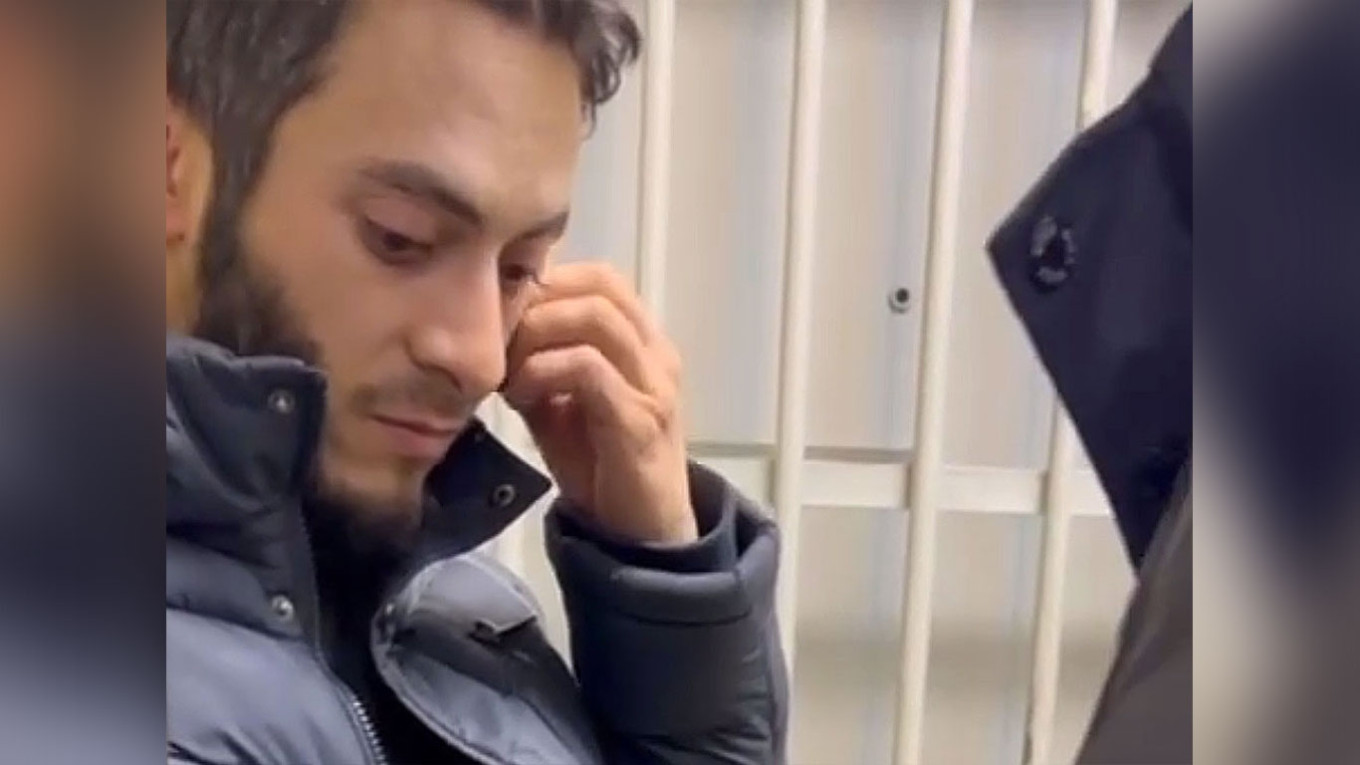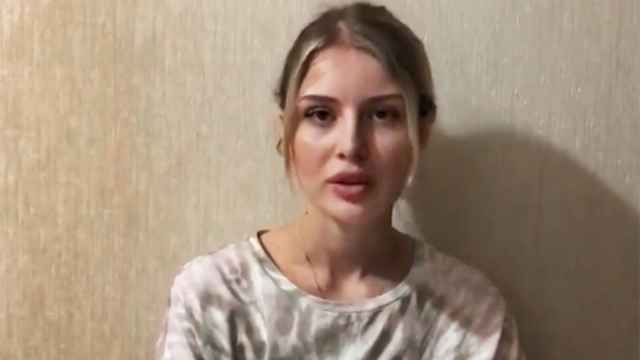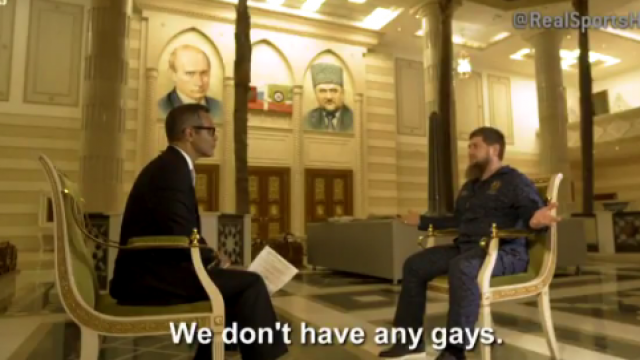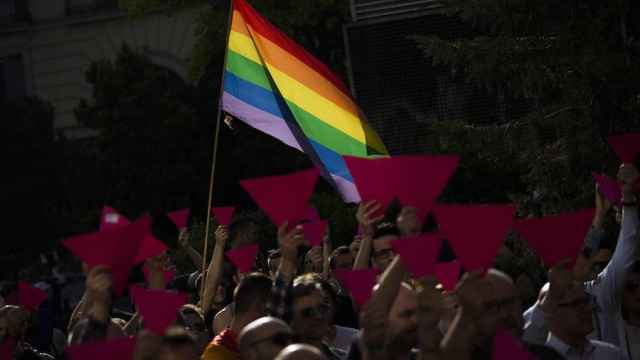Russian police detained a gay Chechen refugee upon his arrival in Moscow, activists said early Thursday, raising fears that he may be imprisoned and tortured by security officers in his home region.
Idris Arsamikov, 28, is believed to have been taken to the conservative, majority-Muslim region hours after landing at Moscow’s Domodedovo Airport to attend his father’s funeral, according to the North Caucasus LGBTQ+ support group SK SOS.
Video filmed by Arsamikov’s lawyer and posted on SK SOS’ Telegram social media channel shows a plainclothes officer with a hood over his head taking Arsamikov in an unknown direction.
The visibly shaken Arsamikov remains silent as the lawyer urges him to resist detention.
“The agent who came to pick up Idris at Domodedovo did not present documents to local police and refused to inform his lawyer about the detainee’s status,” SK SOS wrote.
“We believe Arsamikov is now being taken to Chechnya, where he faces mortal danger,” the group added.
The activist group said earlier it believes that Chechen authorities may have prepared charges of large-scale fraud against Arsamikov. It noted that similar cases are regularly opened against Chechen activists who are seen as disloyal to local authorities.
SK SOS said it helped Arsamikov flee Chechnya in 2018 and settle in the Netherlands after Chechen security forces electrocuted him in a basement for having a same-sex relationship.
Chechnya's strongman leader Ramzan Kadyrov, who is under multiple U.S. sanctions for alleged human rights abuses, has for years maintained that “no gays” live in his region.
At the same time, credible reports have documented cases of what came to be known as a "gay purge" in Chechnya.
Chechen authorities have dismissed the reports, while Russian authorities have echoed Kadyrov’s assertion that there are no gay people in Chechnya.
A Message from The Moscow Times:
Dear readers,
We are facing unprecedented challenges. Russia's Prosecutor General's Office has designated The Moscow Times as an "undesirable" organization, criminalizing our work and putting our staff at risk of prosecution. This follows our earlier unjust labeling as a "foreign agent."
These actions are direct attempts to silence independent journalism in Russia. The authorities claim our work "discredits the decisions of the Russian leadership." We see things differently: we strive to provide accurate, unbiased reporting on Russia.
We, the journalists of The Moscow Times, refuse to be silenced. But to continue our work, we need your help.
Your support, no matter how small, makes a world of difference. If you can, please support us monthly starting from just $2. It's quick to set up, and every contribution makes a significant impact.
By supporting The Moscow Times, you're defending open, independent journalism in the face of repression. Thank you for standing with us.
Remind me later.






